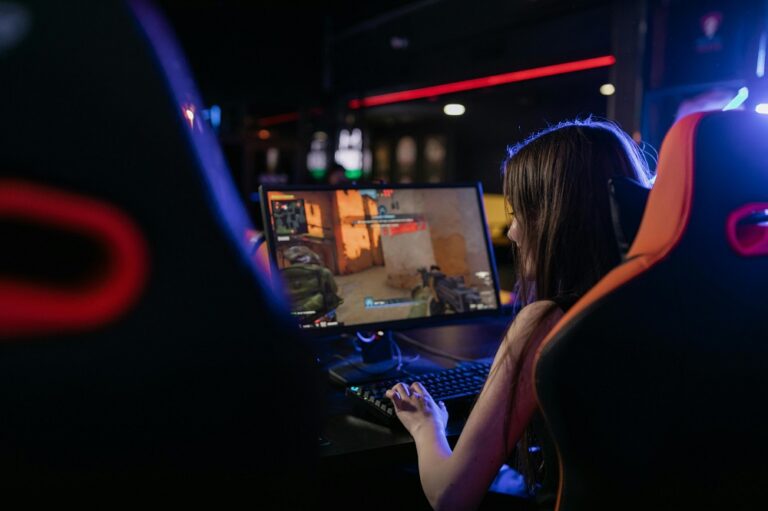A few years ago, buying something that only existed inside a game sounded absurd. Yet today, those virtual collectibles hold genuine worth. From character outfits to rare in-game upgrades, digital ownership is shaping the modern gaming scene. What began as casual fun has evolved into a thriving economy where creativity, identity, and technology intersect.
This shift has changed how people see value. Each digital item now represents expression, time, and status. The rise of these goods demonstrates how gaming has evolved from a purely entertainment-driven activity into a substantial component of the global marketplace.
The following sections explore how this transformation unfolded, why it matters, and the technology keeping it secure.
The Evolution of Virtual Goods
Gaming’s economy has matured over time. In its early days, small purchases, such as new skins or coins, made games more interactive. The next stage introduced downloadable packs and live-service updates, transforming personalization into a daily habit.
These choices weren’t just about looks. They became a way for players to express themselves and connect with others. Games such as Fortnite, Roblox, and GTA Online led the shift by blending creativity with community.
According to research, the global gaming market reached $221 billion in 2024, demonstrating that digital customization has become a significant business. That growth also shows how personal expression now drives the industry’s most substantial profits. Players aren’t just participating — they’re shaping entire economies with every purchase they make.
The Business of Digital Ownership
What began as entertainment now runs like a global trade network. Players buy, sell, and exchange digital assets that carry real financial weight. Experts say the rise of verified marketplaces has created safer and more transparent environments for these trades to occur. These platforms connect players who want to exchange gaming accounts, currencies, or services without fear of scams or fraud.
“Transparency and trust are the new currencies of online gaming,” said Anna Zhang, Head of Marketing at U7BUY. “Players deserve safe, reliable ecosystems where trading digital assets feels as secure as buying a physical product.”
Her words reflect the direction the entire gaming economy is heading toward—building systems that prioritize integrity over scale. Platforms that combine protection with convenience will define how players interact with digital ownership in the years ahead.
Why In-Game Assets Matter More Than Ever
Beyond entertainment, these goods hold four types of value:
- Emotional value: They allow players to express their creativity and individuality through design.
- Competitive value: Unique equipment or skins improve gameplay and recognition.
- Economic value: Trusted marketplaces enable players to profit from digital exchanges safely.
- Social value: Owning rare items symbolizes achievement within online communities.
According to Credence Research, the global demand for virtual goods was valued at USD 67.5 billion in 2022 and is expected to reach USD 203.6 billion by 2030, growing at a CAGR of 20.2% between 2023 and 2030. This sharp rise underscores how virtual ownership is no longer niche—it’s now an integral part of modern consumer behavior, seamlessly blending social identity with digital creativity.
The Technology Powering the Virtual Economy
Advanced technology supports every part of this ecosystem. Blockchain systems verify ownership and prevent duplication of assets. Cloud-based gaming allows global players to connect instantly without performance loss. Artificial intelligence improves experiences by learning user preferences and suggesting relevant items.
Secure payment systems ensure transactions are quick and protected, while encryption prevents the misuse of personal data. Together, these advances ensure that trading remains fast, transparent, and fair. As technology evolves, more users join these economies with confidence, knowing their purchases are both authentic and protected.
Challenges in the Virtual Marketplace
The economy also faces serious risks:
- Fraud and scams: Unverified sellers use fake listings to deceive players.
- Legal uncertainty: Ownership and refund laws vary across countries.
- Counterfeit items: Duplicated goods hurt credibility and player trust.
- Data security gaps: Weak protection can expose personal accounts.
Modern marketplaces address these concerns through strict verification, transparent pricing, and secure transfer systems. By doing so, they build stronger relationships between users and the virtual economy. Sustained trust remains the key to long-term success for everyone involved.
Final Thoughts
Digital goods have evolved beyond mere items; they are the foundation of a new era in gaming. They connect people, empower creativity, and give players a real sense of identity within virtual spaces. What once seemed like a simple transaction now represents effort, pride, and a sense of community. As security improves and technology evolves, the boundary between real and digital ownership continues to fade. The value of these virtual assets isn’t just financial — it’s emotional, cultural, and deeply personal, marking the true future of interactive entertainment.






